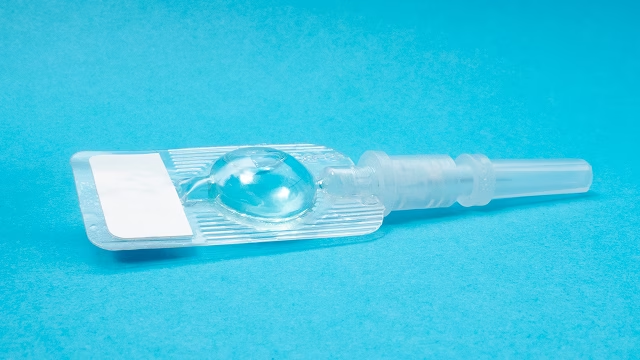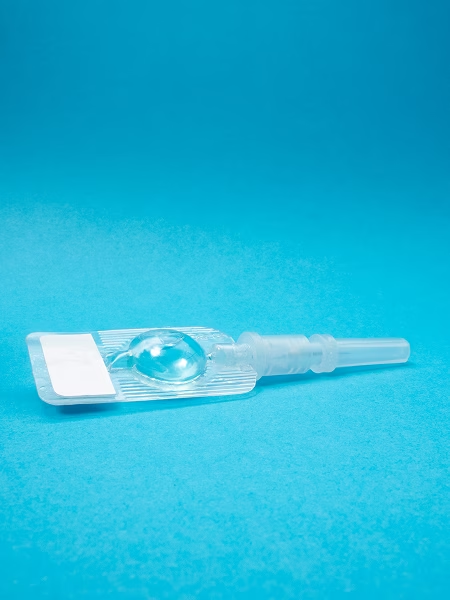With so many options, finding the right one can feel overwhelming. The Depo-Provera shot (also known as “the shot” or “Depo”) might be a good fit if you’re looking for something convenient, low maintenance, and discreet. This highly effective shot is given every three months, offering reliable pregnancy prevention without the need for daily reminders or routines. If you’re interested in learning more, you can consult with a Hey Jane provider and get the shot sent to your local pharmacy for pick up (either to inject yourself at home, or by a pharmacist in-person). Get started here.
Continue reading to learn more about if Depo-Provera may be right for you.
What is Depo-Provera?
Depo-Provera, also known as the birth control shot, is an injectable contraceptive that contains the hormone progestin. The shot is typically administered every 3 months (11 to 13 weeks), either in the arm, stomach, thigh, or buttocks. Once administered, it provides up to 14 weeks of pregnancy prevention, and sticking to a strict schedule is key for the shot to be effective.
Unlike birth control pills, Depo-Provera doesn’t require daily attention (or even monthly attention, like the ring or patch), making it a convenient option for those who prefer a longer-term method of contraception. It is also the most discreet method of contraception, as there are no devices or medications you have to keep at home.
While the shot is effective for preventing pregnancy, it does not protect against sexually transmitted infections (STIs), so pairing it with condoms is recommended for comprehensive protection.
How does Depo work to prevent pregnancy?
The Depo-Provera shot prevents pregnancy in two ways. First, the shot contains a hormone called progestin, which stops the ovaries from releasing an egg. Without ovulation, there’s no egg for sperm to fertilize, making pregnancy impossible. Second, the hormone also thickens the mucus in the cervix, creating a barrier that makes it difficult for sperm to reach any eggs that might be present.
How effective is the shot?
When used as directed, Depo-Provera is about 96% effective at preventing pregnancy. Its effectiveness depends on receiving injections on time every 12 weeks. Missing or delaying a shot increases the risk of unintended pregnancy.


How to get Depo-Provera
The Depo-Provera shot must be prescribed by a health care provider and is usually administered in a doctor’s office, clinic, or pharmacy.
In some cases, there’s a version called Depo-subQ Provera 104 that can be self-administered at home after proper training. If you choose to self-inject the medication, your health care provider will provide you with thorough instructions, from preparing your skin for the injection to disposing of the materials.
When is the shot administered?
Your health care provider will most likely administer Depo-Provera within seven days of the start of your period to ensure you’re not pregnant at the time you receive the shot (you may need to take a pregnancy test before receiving the shot).
How long does it take for the shot to be effective?
If the first shot is given within the first seven days of your menstrual cycle, it provides immediate protection against pregnancy. If you receive the shot at any other time, use a backup contraception method like condoms for seven days after receiving the shot.
It’s crucial to stick to the injection schedule—every 11 to 13 weeks—to maintain continuous protection. Set a calendar reminder and schedule your follow-up appointments in advance to stay on track.
Who is eligible for the shot?
Most people can safely use Depo-Provera, but it may not be suitable for everyone. As with all methods of birth control- you have to weigh the risks and benefits.
For individuals with the following conditions the risks are higher than the benefits and may not be eligible for the shot:
Because Depo doesn’t contain estrogen, it’s safe for people with conditions like migraine with aura and higher blood pressure.
Your provider will assess your medical history to determine if Depo-Provera is a good fit. Fertility can take some time to return after stopping the shot, so it may not be the right choice for those planning a pregnancy in the near future.
Risks and side effects
The most common side effect experienced from Depo-Provera is changes to the menstrual cycle, but these usually resolve after your third shot. After one year of use approximately 50% of people using Depo-Provera will stop having a period altogether. Other side effects of the shot can include:
- Irregular menstrual periods or no periods (often seen as a benefit)
- Weight changes
- Headaches
- Changes in mood, such as depression or nervousness
- Acne
- Hair loss or unwanted hair growth
- Temporary Bone density loss with prolonged use
A positive side effect of Depo is that if you have sickle cell anemia, it can help decrease how often you have a sickle cell crisis and how intense the crisis is.
Although most side effects will diminish or resolve over time, it’s important to discuss any concerns with your healthcare provider.
The Depo-Provera shot offers an effective, long-lasting, and low-maintenance birth control option for many people. However, staying on schedule is essential for its success—before choosing the shot, consider if the timeline will work for you. Schedule an appointment with a Hey Jane provider to discuss whether Depo-Provera is right for you.


Want to take action?
Join the Un-Whisper Network

















